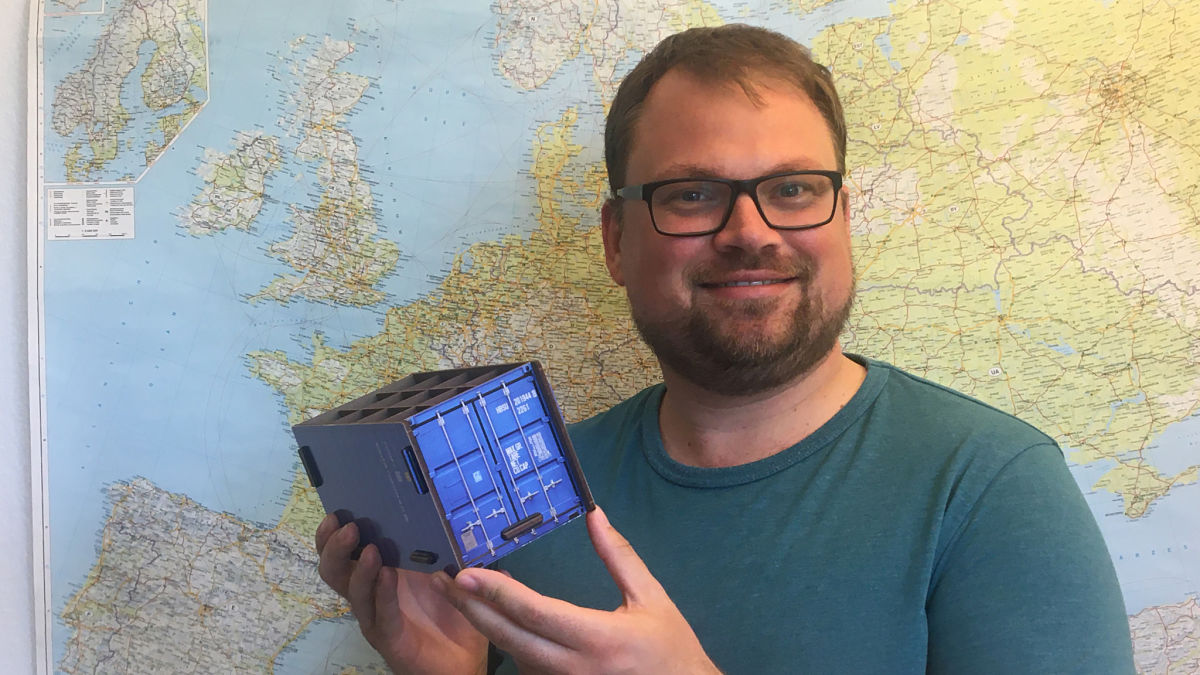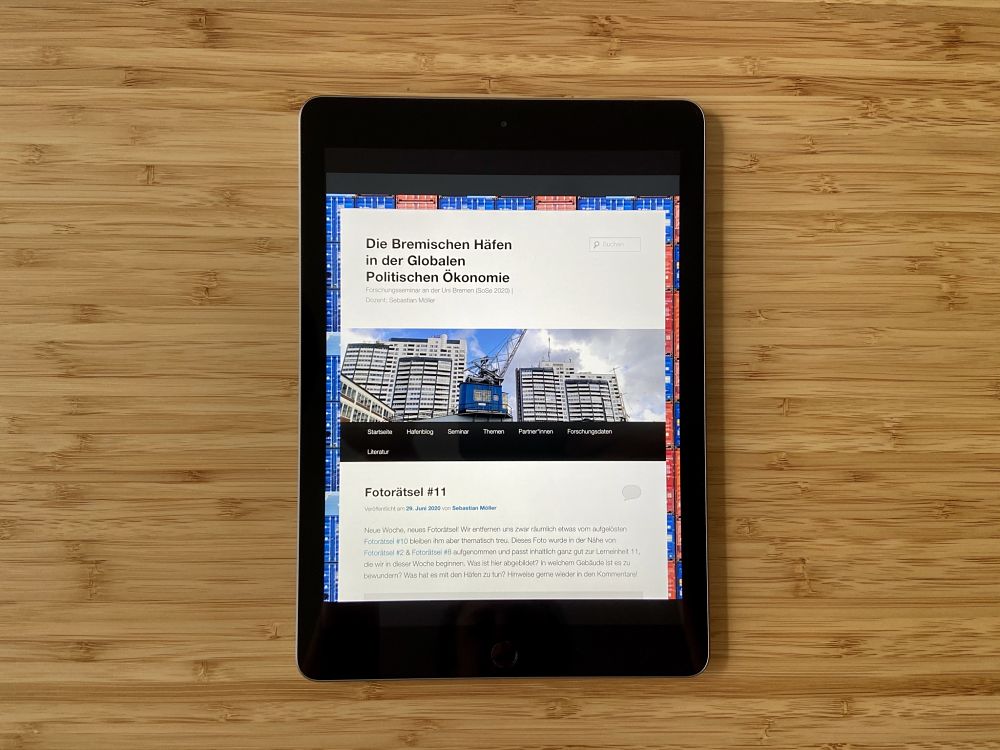
© Sebastian Möller
Digital Port Seminar
Sebastian Möller intertwines academic content with everyday experiences
Via blog to a hotspot of worldwide economic development: Officially, the course is called “Key to the World: Bremen’s Ports in the Global, Political Economy”. But what may initially sound dry, is a digital “port seminar”, where the political scholar Sebastian Möller actively involves the students in teaching in the face of the corona pandemic using a “port blog”.
Mr. Möller, why did you pick a “port seminar”?
The seminar investigates the question of what effect changes in the world economy have on local economy, society, and politics. The ports are an ideal starting point because they, as the infrastructure of world trade and as key to the world, are crystallization points of global-local interaction. They are also well suited to a seminar because you can visit them – when a pandemic hasn’t just broken out – and you can meet and talk with people who work there or make port-political decisions.

© DJI-FUNK / Adobe Stock
When I teach, I always try to intertwine academic content with the student’s everyday experiences so that the motivation to learn is increased and to make abstract theories and concepts more tangible. My courses mainly take place in seminar rooms, but audiovisual material and several interactive elements are also included. My teaching should activate the students and awaken their curiosity. That is, however, much more difficult to do digitally.
How does your “port blog” add to the seminar?
Alongside Stud.IP, where teaching materials are saved as usual and organization matters are clarified, the port blog is the central learning space for the seminar. For each learning unit – formerly seminar sessions – I write an introductory blog post that addresses central themes and questions and examines the compulsory literatures. Students can use the comment function for all content-related questions and messages. Moreover, there are the “port news”, where the students and I collect current events with links to media reports. A weekly photo puzzle also sends the students on a digital adventure through Bremen’s ports.

© Universität Bremen
However, the central function of the blog is to make student contributions available. Said contributions are posted within three weeks after the start of a learning unit. The students deal with sub-aspects of the unit that they have chosen themselves and present the results of their research. I place a special focus on the evaluation of empirical material, as we are dealing with a research seminar. Other students and I then comment on the posts. A real discussion unfolded in the comments section of some of them.
That is also the main advantage of the blog for me: The student texts are revaluated as teaching material for the seminar group and a constructive and asynchronous discourse about the topics develops. 95 percent of the participants decided that the blog should be open to the public in a Stud.IP survey. The students of the port seminar are therefore not only writing for the university but rather for the general public – even if the latter group is most probably quite small.
You are using the University of Bremen’s blog system. How difficult was it to set up?
Using it is actually really easy and intuitive. UBlogs offers several tutorial videos, a helpful chat, and an extremely good user support system. That was really very helpful and motivated me to use the tool. The University of Bremen blogs run via the WordPress system with which I have already worked. I previously was the administrator for the website of the research group where I worked. Furthermore, I frequently publish posts on social science blogs. That’s why I was already a little familiar with the medium but had never before had the idea to use it in teaching.
How many students are taking part in the blog?
In general, I am really surprised in a positive way. I did, of course, realize that the seminar participants would write the required blog posts to acquire credit points. But I would have never thought that so many students would participate in such an active manner with comments, their own port news, and even a picture puzzle. I truly am very impressed and have already learnt a great deal from my students, despite the fact that I believe that no digital tool in the world can replace the joint learning process and discussion in the seminar room. Naturally, the well-known phenomenon that several students are extremely active and from some others there’s not a sound, applies to my seminar as well. We need to be aware that degrees are currently taking place under difficult circumstances and that not everyone has great conditions for digital learning and contributing.
Do you use other digital formats for your seminar?
Alongside occasional Zoom conferences, I make learning videos on several topics. In the videos I explain the main aspects or terms and interview guests, who we would have met personally under normal circumstances, for example the curator of the Port Museum, staff members of district centers, or a unit head from Bremen Senate. Students can also make their own podcast or vlog for mid-level coursework, which will then be made available via the port blog. I also regularly tweet about the port seminar and have made a list named “Bremen, Port & Logistics” to show my students the potential of twitter as a source of research data.
University of Bremen’s Blog System
Teaching staff and students can use the “UBlogs” blog system from the University of Bremen. It can be set up with a ZfN account at blogs.uni-bremen.de. Explanatory videos and support can be found at blogs.uni-bremen.de/support. The system is supervised by the Center for Multimedia in Teaching (ZMML) at the University of Bremen.